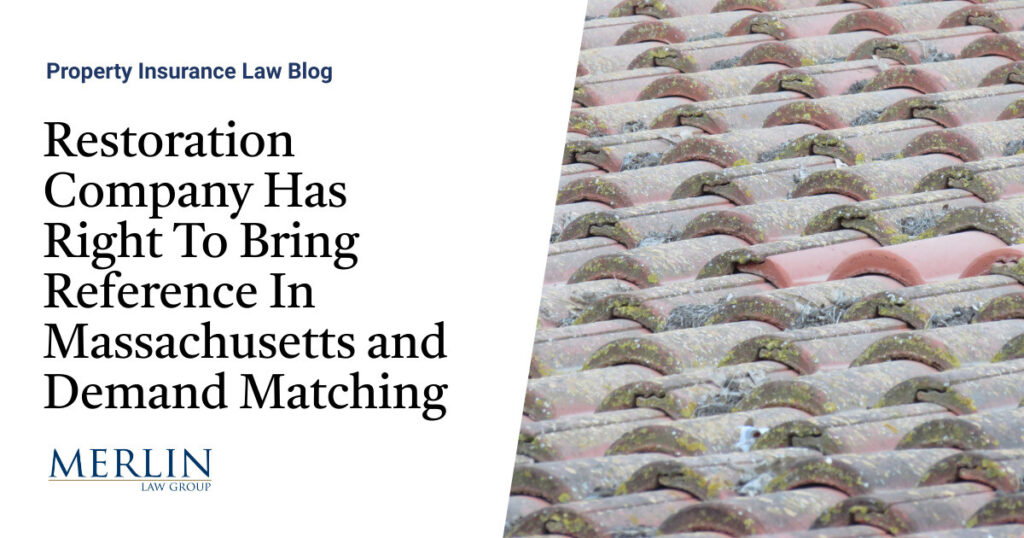Restoration Company Has Right To Bring Reference In Massachusetts and Demand Matching

Massachusetts does not have appraisal. Instead, it uses a system known as “reference” as noted in Appraisal in Massachusetts is a “Reference” Proceeding. A Massachusetts judge ruled on Monday that a restoration contractor, New England Property Services Group, LLC (NEPSG), with an Assignment of Benefits from a homeowner, has a right to demand “reference” against Bunker Hill Preferred Insurance Company to resolve the insurance dispute. 1 The judge also ruled that the policy required the insurer to pay for matching of damaged materials.
In a typical dispute between restoration contractors and insurers, NEPSG, having an irrevocable assignment of the insurance claim from the homeowner, sought reimbursement for repair costs significantly higher than Bunker Hill’s assessment. The disagreement was over the scope and cost of repairs.
The court examined whether the insurance policy required the replacement of damaged property with materials of like kind and quality. The policy stipulated that the insurer would cover the smallest of three amounts: the replacement cost of the damaged part with like kind and quality materials, the actual amount spent on repairs, or the policy’s limit of liability. The key issue was the interpretation of “like kind and quality,” which the court found ambiguous and thus ruled in favor of the restoration company. The court determined that the Bunker Hill policy indeed required matching and that if identical materials were unavailable, the insurer might need to replace undamaged portions as well to ensure uniformity.
Regarding the right to demand reference, the court recognized that the policy provided for such a process in case of disagreement over the amount of loss. Since NEPSG was the valid assignee of the claim, it had standing to demand reference, countering Bunker Hill’s assertion that only the named insured could do so. The court affirmed NEPSG’s right to proceed with the reference process. I am certain that Massachusetts restoration contractors will demand a reference proceeding much more frequently, citing this case.
We have previously discussed bad faith actions in Massachusetts in Bad Faith Conduct and Foreseeable Damages in Massachusetts. In this case, the court also addressed claims under Chapters 93A and 176D concerning unfair and deceptive practices. It concluded that Bunker Hill’s actions did not reach the threshold of violating these statutes, as the dispute was primarily a contractual disagreement over the assessment of damages rather than an unethical or unscrupulous act. Proof of a valuable bad faith case in Massachusetts on a first-party claim is a lot more difficult as a result of case law than what the literal reading of the consumer protections of the law seems to afford.
Insurance defense attorney Brendan Labbe of Sloane and Walsh brought this case to my attention by posting the ruling on his LinkedIn account.
Thought For The Day
The Battle of Bunker Hill, a significant early confrontation during the American Revolutionary War, has been the subject of many memorable quotes and observations from various historical figures and authors. My favorite is:
“Don’t fire until you see the whites of their eyes!”
—General Israel Putnam
1 New England Prop. Services Group v. Bunker Hill Preferred Ins. Co., No.2284CV2019 (Mass. Super. Apr. 22, 2024).







